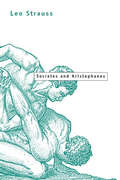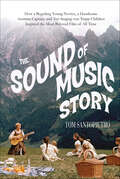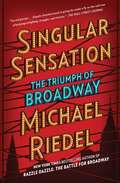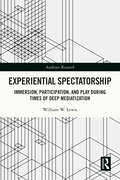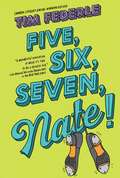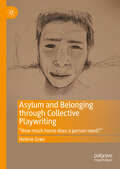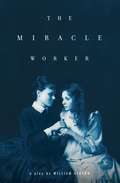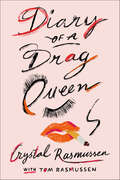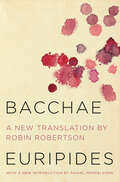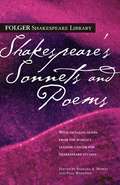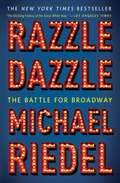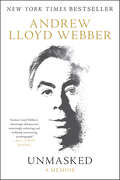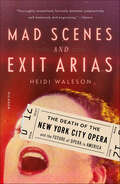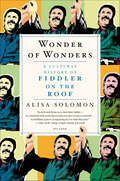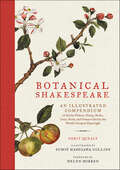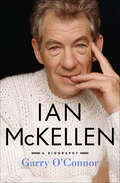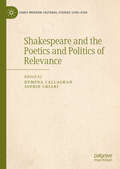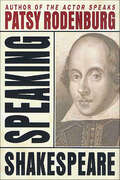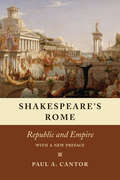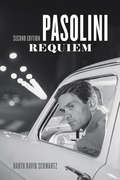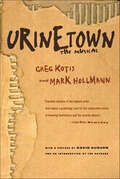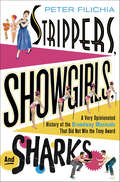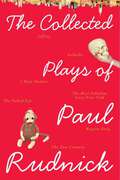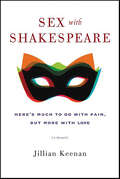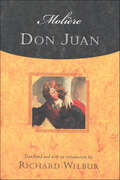- Table View
- List View
Socrates and Aristophanes
by Leo StraussIn one of his last books, Socrates and Aristophanes, Leo Strauss's examines the confrontation between Socrates and Aristophanes in Aristophanes' comedies. Looking at eleven plays, Strauss shows that this confrontation is essentially one between poetry and philosophy, and that poetry emerges as an autonomous wisdom capable of rivaling philosophy. "Strauss gives us an impressive addition to his life's work—the recovery of the Great Tradition in political philosophy. The problem the book proposes centers formally upon Socrates. As is typical of Strauss, he raises profound issues with great courage. . . . [He addresses] a problem that has been inherent in Western life ever since [Socrates'] execution: the tension between reason and religion. . . . Thus, we come to Aristophanes, the great comic poet, and his attack on Socrates in the play The Clouds. . . [Strauss] translates it into the basic problem of the relation between poetry and philosophy, and resolves this by an analysis of the function of comedy in the life of the city." —Stanley Parry, National Review
The Sound of Music Story: How a Beguiling Young Novice, a Handsome Austrian Captain, and Ten Singing von Trapp Children Inspired the Most Beloved Film of All Time
by Tom Santopietro&“Fans of The Sound of Music will find plenty to please them in [this] history of the sweeping musical.&” —Kirkus Reviews On March 2, 1965, The Sound of Music was released in the United States and the love affair between moviegoers and the classic Rodgers and Hammerstein musical began. Rarely has a film captured the love and imagination of the moviegoing public the way The Sound of Music did as it blended history, music, stunning Austrian locations, heartfelt emotion—and the yodeling of Julie Andrews—into a monster hit. Now, Tom Santopietro has written the ultimate book for fans with behind the scenes stories of the filming, new interviews with Johannes von Trapp and others, photographs, and more. He looks back at the real life story of Maria von Trapp, goes on to chronicle the sensational success of the Broadway musical, and recounts the near cancellation of the film when Cleopatra bankrupted 20th Century Fox. He reveals the actors who were also considered for the roles of Maria and Captain von Trapp, and provides a historian&’s critical analysis of the careers of director Robert Wise and screenwriter Ernest Lehman. He also takes a look at the critical controversy that greeted the movie, its relationship to the turbulent 1960s, and the superstardom that engulfed Julie Andrews. The Sound of Music Story is for everyone who cherishes this American classic.
Singular Sensation: The Triumph of Broadway
by Michael Riedel&“Fun and gossipy.&” —The Wall Street Journal * &“A masterful history.&” —Publishers Weekly (starred review) * &“Engaging.&” —Newsweek A &“brisk, insightful, and deliciously detailed take&” (Kirkus Reviews) on a transformative decade on Broadway, featuring behind-the-scenes accounts of shows such as Rent, Angels in America, Chicago, The Lion King, and The Producers—shows that changed the history of the American theater. The 1990s was a decade of profound change on Broadway. At the dawn of the nineties, the British invasion of Broadway was in full swing, as musical spectacles like Les Miserables, Cats, and The Phantom of the Opera dominated the box office. But Andrew Lloyd Webber&’s Sunset Boulevard soon spelled the end of this era and ushered in a new wave of American musicals, beginning with the ascendance of an unlikely show by a struggling writer who reimagined Puccini&’s opera La Bohème as the smash Broadway show Rent. American musical comedy made its grand return, culminating in The Producers, while plays, always an endangered species on Broadway, staged a powerful comeback with Tony Kushner&’s Angels in America. A different breed of producers rose up to challenge the grip theater owners had long held on Broadway, and corporations began to see how much money could be made from live theater. And just as Broadway had clawed its way back into the mainstream of American popular culture, the September 11 attacks struck fear into the heart of Americans who thought Times Square might be the next target. But Broadway was back in business just two days later, buoyed by talented theater people intent on bringing New Yorkers together and supporting the economics of an injured city. &“Told with all the wit and style readers could wish for&” (Booklist) Michael Riedel presents the drama behind every mega-hit or shocking flop. From the bitter feuds to the surprising collaborations, all the intrigue of a revolutionary era in the Theater District is packed into Singular Sensation. Broadway has triumphs and disasters, but the show always goes on.
Experiential Spectatorship: Immersion, Participation, and Play During Times of Deep Mediatization (Audience Research)
by William W. LewisExperiential Spectatorship offers a lens for analyzing audience experience with(in) a variety of contemporary media. Using a broad-based perspective, this media includes participatory theatre, video games, digital simulations, social media platforms, alternate reality games, choose your own adventure narratives, interactive television, and a variety of other experiential performance events. Through a taxonomy that includes Immersion, Participation, Game Play, and Role Play the book guides the reader to understand the ways mediatization and technics brought about by digital technologies are changing the capacities and expectations of contemporary audiences. In their daily interactions and relations with their technologies, they become mediatized spectators. By reading these technologies' impacts on individual subjectivity prior to acts of spectatorship, one gains the tools to best describe how the spectator creates forms of relational exchange with their experential media.This book prepares the reader to think in a digital manner so they can best recognize how performance and spectatorship in the twenty-first century are evolving to meet the needs of future waves of spectators brought up in a postdigital world.
Five, Six, Seven, Nate!: Better Nate Than Ever; Five, Six, Seven, Nate!; Nate Expectations (Nate)
by Tim Federle&“The Nate series by Tim Federle is a wonderful evocation of what it&’s like to be a theater kid. Highly recommended.&” —Lin-Manuel Miranda, star and creator of the musical, Hamilton Winner of the Lambda Literary Award Encore! Nate Foster&’s Broadway dreams are finally coming true in this sequel to Better Nate Than Ever that Publishers Weekly calls a &“funny, tender coming-of-age story.&”Armed with a one-way ticket to New York City, small-town theater geek Nate is off to start rehearsals for E.T.: The Broadway Musical. It&’s everything he ever practiced his autograph for! But as thrilling as Broadway is, rehearsals are nothing like Nate expects: full of intimidating child stars, cut-throat understudies, and a director who can&’t even remember Nate&’s name. Now, as the countdown to opening night is starting to feel more like a time bomb, Nate is going to need more than his lucky rabbit&’s foot if he ever wants to see his name in lights. He may even need a showbiz miracle. The companion novel to Better Nate Than Ever, which The New York Times called &“inspired and inspiring,&” Five, Six, Seven, Nate! is full of secret admirers, surprise reunions, and twice the drama of middle school...with a lot more glitter.
Asylum and Belonging through Collective Playwriting: "How much home does a person need?"
by Helene GrønThis book explores the notion of home in the wake of the so-called refugee crisis, and asks how home and belonging can be rethought through the act of creative practices and collective writing with refugees and asylum seekers. Where Giorgio Agamben calls the refugee ‘the figure of our time’, this study places the question of home among those who experience its ruptures. Veering away from treating the refugee as a conceptual figure, the lived experiences and creative expressions of seeking asylum in Denmark and the United Kingdom are explored instead. The study produces a theoretical framework around home by drawing from a cross-disciplinary field of existential and political philosophy, narratology, performance studies and anthropology. Moreover, it argues that theatre studies is uniquely positioned to understand the performative and storied aspects of seeking asylum and the compromises of belonging made through the asylum process.
The Miracle Worker: A Play
by William GibsonNO ONE COULD REACH HER Twelve-year-old Helen Keller lived in a prison of silence and darkness. Born deaf, blind, and mute, with no way to express herself or comprehend those around her, she flew into primal rages against anyone who tried to help her, fighting tooth and nail with a strength born of furious, unknowing desperation. Then Annie Sullivan came. Half-blind herself, but possessing an almost fanatical determination, she would begin a frightening and incredibly moving struggle to tame the wild girl no one could reach, and bring Helen into the world at last....
Diary of a Drag Queen
by Crystal Rasmussen Tom Rasmussen“This book changed my life. Tom Rasmussen’s honesty, vulnerability, and fearlessness jump out of every page and every word. It is the queer bible I’ve always needed.” —Sam Smith, singer and songwriter"Tom covers the nuance, doubt, and uncertainty of being a drag queen. Crystal covers the transcendence . . . Charisma and quick intelligence—two qualities that have long been prerequisites for drag . . . Diary puts on technicolor display." —Katy Waldman, The New YorkerIn these pages, find glamour and gaffes on and off the stage, clarifying snippets of queer theory, terrifyingly selfish bosses, sex, quick sex, KFC binges, group sex, the kind of honesty that banishes shame, glimmers of hope, blazes of ambition, tender sex, mad dashes in last night's heels plus a full face of make-up, and a rom-com love story for the ages. This is where the unspeakable becomes the celebrated. This is the diary of a drag queen—one dazzling, hilarious, true performance of a real, flawed, extraordinary life. "I hope people like me will read this and feel seen and loved by it. I hope people who aren't like me will enjoy it, laugh with it, learn from it. And I hope people who don't like me will file lawsuits just so I can wear my brand-new leopard-print skirt suit and bust their asses in court."—Crystal Rasmussen, in Refinery29
Bacchae
by EuripidesA bold new translation of Euripides' shockingly modern classic work, from Forward Prize-winning poet Robin Robertson, with a new preface by bestselling and award-winning writer, critic, and translator Daniel MendelsohnThebes has been rocked by the arrival of Dionysus, the god of wine and ecstasy. Drawn by the god's power, the women of the city have rushed to worship him on the mountain, drinking and dancing with frenzied abandon.Pentheus, the king of Thebes, is furious, denouncing this so-called god as a charlatan and an insurgent. But no mortal can deny a god, much less one as powerful and seductive as Dionysus, who will exact a terrible revenge on Pentheus, drawing the king to his own tragic destruction.This stunning translation by award-winning poet Robin Robertson reinvigorates Euripides' masterpiece. Updating it for contemporary readers, he brings the ancient verse to fervid, brutal life, revealing a work of art as devastating and relevant today as it was in the fifth century BC.
Shakespeare's Sonnets & Poems (Folger Shakespeare Library)
by William ShakespeareA bestselling, beautifully designed edition of William Shakespeare’s sonnets and poems, complete with valuable tools for educators. The authoritative edition of Shakespeare’s Sonnets and Poems from The Folger Shakespeare Library, the trusted and widely used Shakespeare series for students and general readers, includes: -Full explanatory notes conveniently linked to the text of each sonnet and poem -A brief introduction to each sonnet and poem, providing insight into its possible meaning -An index of first lines -Illustrations from the Folger Shakespeare Library’s vast holdings of rare books -An essay by a leading Shakespeare scholar providing a modern perspective on the sonnets The Folger Shakespeare Library in Washington, DC, is home to the world’s largest collection of Shakespeare’s printed works, and a magnet for Shakespeare scholars from around the globe. In addition to exhibitions open to the public throughout the year, the Folger offers a full calendar of performances and programs. For more information, visit Folger.edu.
Razzle Dazzle: The Battle for Broadway
by Michael Riedel&“A vivid page-turner&” (NPR) detailing the rise, fall, and redemption of Broadway—its stars, its biggest shows, its producers, and all the drama, intrigue, and power plays that happened behind the scenes.&“A rich, lovely, debut history of New York theater in the 1970s and eighties&” (Kirkus Reviews, starred review), Razzle Dazzle is a narrative account of the people and the money and the power that turned New York&’s gritty back alleys and sex-shops into the glitzy, dazzling Great White Way. In the mid-1970s Times Square was the seedy symbol of New York&’s economic decline. Its once shining star, the renowned Shubert Organization, was losing theaters to make way for parking lots and losing money. Bernard Jacobs and Jerry Schoenfeld, two ambitious board members, saw the crumbling company was ripe for takeover and staged a coup and staved off corporate intrigue, personal betrayals and criminal investigations. Once Jacobs and Schoenfeld solidified their power, they turned a collapsed theater-owning holding company into one of the most successful entertainment empires in the world, spearheading the revitalization of Broadway and the renewal of Times Square. &“For those interested in the business behind the greasepaint, at a riveting time in Broadway&’s and New York&’s history, this is the ticket&” (USA TODAY). Michael Riedel tells the stories of the Shubert Organization and the shows that re-built a city in grand style—including Cats, A Chorus Line, and Mamma Mia!—revealing the backstage drama that often rivaled what transpired onstage, exposing bitter rivalries, unlikely alliances, and inside gossip. &“The trouble with Razzle Dazzle is…you can&’t put the damn thing down&” (Huffington Post).
Unmasked: A Memoir
by Andrew Lloyd Webber“Unmasked will tickle music and theater geeks. It’s an insider’s inside account, highly readable, thanks to Lloyd Webber’s affable, intelligent voice.” —USA TodayOne of the most successful and distinguished artists of our time, Andrew Lloyd Webber has reigned over the musical theatre world for nearly five decades. The winner of numerous awards, including multiple Tonys and an Oscar, Lloyd Webber has enchanted millions worldwide with his music and numerous hit shows, including Jesus Christ Superstar, Evita, Cats, The Phantom of the Opera—Broadway’s longest running show—and most recently, School of Rock. In Unmasked, written in his own inimitable, quirky voice, the revered, award-winning composer takes stock of his achievements, the twists of fate and circumstance which brought him both success and disappointment, and the passions that inspire and sustain him.A record of several exciting and turbulent decades of British and American musical theatre and the transformation of popular music itself, Unmasked is ultimately a chronicle of artistic creation. Lloyd Webber looks back at the development of some of his most famous works and illuminates his collaborations with luminaries such as Tim Rice, Robert Stigwood, Harold Prince, Cameron Mackintosh, and Trevor Nunn.Reflecting a life that included many passions (from architecture to Turkish Swimming Cats), full of witty and revealing anecdotes, and featuring cameo appearances by numerous celebrities—Elaine Paige, Sarah Brightman, David Frost, Julie Covington, Judi Dench, Richard Branson, A.R. Rahman, Mandy Patinkin, Patti LuPone, Richard Rodgers, Norman Jewison, Milos Forman, Plácido Domingo, Barbra Streisand, Michael Crawford, Gillian Lynne, Betty Buckley, and more—Unmasked at last reveals the true face of the extraordinary man beneath the storied legend.
Mad Scenes and Exit Arias: The Death of the New York City Opera and the Future of Opera in America
by Heidi WalesonFrom the Wall Street Journal’s opera critic, a history of how and why the New York City Opera went bankrupt—and what it means for the future of the arts.In October 2013, the arts world was rocked by the news that the New York City Opera—“the people’s opera”—had finally succumbed to financial hardship after 70 years in operation. The company had been a fixture on the national opera scene—as the populist antithesis of the grand Metropolitan Opera, a nurturing home for young American talent, and a place where new, lively ideas shook up a venerable art form. But NYCO’s demise represented more than the loss of a cherished organization: it was a harbinger of massive upheaval in the performing arts—and a warning about how cultural institutions would need to change in order to survive.Drawing on extensive research and reporting, Heidi Waleson, one of the foremost American opera critics, recounts the history of this scrappy company and reveals how, from the beginning, it precariously balanced an ambitious artistic program on fragile financial supports. Waleson also looks forward and considers some better-managed, more visionary opera companies that have taken City Opera’s lessons to heart.Above all, Mad Scenes and Exit Arias is a story of money, ego, changes in institutional identity, competing forces of populism and elitism, and the ongoing debate about the role of the arts in society. It serves as a detailed case study not only for an American arts organization, but also for the sustainability and management of nonprofit organizations across the country.“An intricate whodunit that seeks to find out who murdered the New York City Opera. . . . Waleson gives us a vivid description of each death-defying crisis and a sharp portrait of the ever-changing cast of would-be saviors who somehow always failed in their mission.” —The New York Times Book Review“Thoroughly researched, factually detailed, judgmentally well-balanced, and engrossing.” —Opera“Waleson’s in-depth study illustrates the challenges City Opera—and other opera houses—face in the 21st century as they seek to preserve tradition and innovate.” —Publishers Weekly“A thorough recounting of the tumultuous history of the New York City Opera [and] a cleareyed examination of the economic fragility of cultural institutions.” —Kirkus Reviews
Wonder of Wonders: A Cultural History of Fiddler on the Roof
by Alisa SolomonA sparkling and eye-opening history of the Broadway musical that changed the worldIn the half-century since its premiere, Fiddler on the Roof has had an astonishing global impact. Beloved by audiences the world over, performed from rural high schools to grand state theaters, Fiddler is a supremely potent cultural landmark.In a history as captivating as its subject, award-winning drama critic Alisa Solomon traces how and why the story of Tevye the milkman, the creation of the great Yiddish writer Sholem-Aleichem, was reborn as blockbuster entertainment and a cultural touchstone, not only for Jews and not only in America. It is a story of the theater, following Tevye from his humble appearance on the New York Yiddish stage, through his adoption by leftist dramatists as a symbol of oppression, to his Broadway debut in one of the last big book musicals, and his ultimate destination—a major Hollywood picture.Solomon reveals how the show spoke to the deepest conflicts and desires of its time: the fraying of tradition, generational tension, the loss of roots. Audiences everywhere found in Fiddler immediate resonance and a usable past, whether in Warsaw, where it unlocked the taboo subject of Jewish history, or in Tokyo, where the producer asked how Americans could understand a story that is "so Japanese."Rich, entertaining, and original, Wonder of Wonders reveals the surprising and enduring legacy of a show about tradition that itself became a tradition.Wonder of wonders, miracle of miracles.
Botanical Shakespeare: An Illustrated Compendium of all the Flowers, Fruits, Herbs, Trees, Seeds, and Grasses Cited by the World's Greatest Playwright
by Gerit QuealyA captivating, beautifully illustrated, one-of-a-kind color compendium of the flowers, fruits, herbs, trees, seeds, and grasses cited in the works of the world’s greatest playwright, William Shakespeare, accompanied by their companion quotes from all of his plays and poems. With a foreword by Dame Helen Mirren—the first foreword she has ever contributed.In this striking compilation, Shakespeare historian Gerit Quealy and respected Japanese artist Sumié Hasegawa combine their knowledge and skill in this first and only book that examines every plant that appears in the works of Shakespeare.Botanical Shakespeare opens with a brief look at the Bard’s relationship to the plants mentioned in his works—a diversity that illuminates his knowledge of the science of botany, as well as the colloquy, revealing his unmatched skill for creating metaphorical connections and interweaving substantive philosophy. At the heart of the book are "portraits" of the over 170 flowers, fruits, grains, grasses, trees, herbs, seeds and vegetables that Shakespeare mentions in his plays and poems. Botanical Shakespeare features a gorgeous color illustration of each, giving a "face" to the name, alongside the specific text in which it appears and the character(s) who utter the lines in which it is mentioned.This fascinating visual compendium also includes a dictionary describing each plant—such as Eglantine, a wild rose with a slight prickle, cherished for its singular scent, superior to any other rose; and the difference between apples and apple-john—along with indices listing the botanical by play/poem, by character, and genus for easy reference, ideal for gardeners and thoughtful birthday gift-giving.This breathtaking, incomparable collection of exquisite artwork and companion quotes offers unique depth and insight into Shakespeare and his timeless work through the unusual perspective of the plants themselves.
Ian McKellen: A Biography
by Garry O'ConnorThe definitive biography of Sir Ian McKellen from an acclaimed biographer In 2001, Ian McKellen put on the robe and pointed hat of a wizard named Gandalf and won a place in the hearts of Tolkien fans worldwide. Though his role in the film adaptation of Lord of the Rings introduced him to a new audience, McKellen had a thriving career a lifetime before his visit to Middle Earth. He made his West End acting debut in 1964 in James Saunders’s A Scent of Flowers, but it was in 1980 that he took Broadway by storm when he played Antonio Salieri in Peter Shaffer’s Tony-Award-winning play Amadeus.He has starred in over four hundred plays and films and he is that rare character: a celebrity whose distinguished political and social service has transcended his international fame to reach beyond the stage and screen. The breadth of his career—professional, personal and political—has been truly staggering: Macbeth (opposite Judi Dench), Iago, King Lear, Chekhov’s Sorin in The Seagull and Becket’s tramp Estragon (opposite Patrick Stewart) in Waiting for Godot. Add to all this his tireless political activism in the cause of gay equality and you have a veritable phenomenon. Garry O’Connor’s Ian McKellen: A Biography probes the heart of the actor, recreating his greatest stage roles and exploring his personal life. Ian McKellen will show readers what makes a great actor tick. His life story has been a constantly developing drama and this biography is the next chapter.
Shakespeare and the Poetics and Politics of Relevance (Early Modern Cultural Studies 1500–1700)
by Dympna Callaghan Sophie ChiariFour years on from George Floyd’s murder, this volume asks if and how Shakespeare might be relevant—whether in performance, in the classroom, or in scholarship—to the pressing issues of social and climate justice. This question, however, is accompanied by the acute and uncomfortable recognition that there have been other consequences to the awakening of the world since Floyd's death, including the call to cancel Shakespeare altogether. This volume, however, is not an apology for Shakespeare but rather an engagement with him. From the perspective of the scholars who contribute here, questions about Shakespeare in our current context are not only deeply enmeshed with issues about his historical, geographical, and performance context and its attendant alterity, but crucially also to the specifically literary forms and structures with which he worked. Even as these essays resist the idea of a “timeless,” universalist Shakespeare, they insist upon the “poetics,” the creative framework, the specifically literary dimensions of the plays that cannot be reduced to any paraphrasable content. These are precisely the features that facilitate and enable the “relevance” of Shakespeare’s works even across the chasm of the centuries since he composed them.
Speaking Shakespeare
by Patsy RodenburgIn Speaking Shakespeare, Patsy Rodenburg tackles one of the most difficult acting jobs: speaking Shakespeare's words both as they were meant to be spoken and in an understandable and dramatic way. Rodenburg calls this "a simple manual to start the journey into the heart of Shakespeare," and that is what she gives us. With the same insight she displayed in The Actor Speaks, Rodenburg tackles the playing of all Shakespeare's characters. She uses dramatic resonance, breathing, and placement to show how an actor can bring Hamlet, Rosalind, Puck and other characters to life. This is one book every working actor must have.
Shakespeare's Rome: Republic and Empire
by Paul A. CantorFor more than forty years, Paul Cantor’s Shakespeare’s Rome has been a foundational work in the field of politics and literature. While many critics assumed that the Roman plays do not reflect any special knowledge of Rome, Cantor was one of the first to argue that they are grounded in a profound understanding of the Roman regime and its changes over time. Taking Shakespeare seriously as a political thinker, Cantor suggests that his Roman plays can be profitably studied in the context of the classical republican tradition in political philosophy. In Shakespeare’s Rome, Cantor examines the political settings of Shakespeare’s Roman plays, Coriolanus and Antony and Cleopatra, with references as well to Julius Caesar. Cantor shows that Shakespeare presents a convincing portrait of Rome in different eras of its history, contrasting the austere republic of Coriolanus, with its narrow horizons and martial virtues, and the cosmopolitan empire of Antony and Cleopatra, with its “immortal longings” and sophistication bordering on decadence.
Pasolini Requiem: Second Edition
by Barth David SchwartzPier Paolo Pasolini (1922–75) was one of the most important Italian intellectuals of the post–World War II era. An astonishing polymath—poet, novelist, literary critic, political polemicist, screenwriter, and film director—he exerted profound influence on Italian culture up to his untimely death at the age of fifty-three. This revised edition of what the New York Times Book Review has called “the standard Pasolini biography” introduces the artist to a new generation of readers. Based on extensive interviews with those who knew Pasolini, both friends and enemies, admirers and detractors, Pasolini Requiem chronicles his growth from poet in the provinces to Italy’s leading “civil poet”; his flight to Rome in 1950; the scandalous success of his two novels and political writing; and his transition to film, where he started as a contributor to the golden age of Italian cinema and ended with the shocking Salò, or the 120 Days of Sodom. Pasolini’s tragic and still unsolved murder has remained a subject of contentious debate for four decades. The enduring fascination with who committed the crime—and why—reflects his vital stature in Italy’s political and social history. Updated throughout and with a new afterword covering the efforts to reopen the investigation—and the legal maelstrom surrounding Pasolini’s demise—this edition of Pasolini Requiem is a riveting account of one of the twentieth century’s most controversial, ever-present iconoclasts.
Urinetown: The Musical
by Greg Kotis Mark HollmannWinner of three Tony Awards, including Best Book, Greg Kotis and Mark Hollmann's Urinetown: The Musical is a tale of greed, corruption, love, and revolution in a time when water is worth its weight in gold.After a twenty-year drought made water a scarce commodity, private toilets became outlawed. Now, all restroom necessaries are controlled by the Urine Good Company (UGC), a megacorporation that charges fees for using public toilets. Anyone unable to pay fees--or who dares to relieve themselves outside the commode--are arrested and banished to "Urinetown".When UGC employee Bobby Strong's father falls victim to this tyranny, he spearheads a revolution, inspiring the people to rise up and reclaim their own restroom duties--unaware of the realities and consequences of his actions...With a preface by David Auburn, Pulitzer Prize-winning playwright of ProofAnd an introduction by the authors
Strippers, Showgirls, and Sharks: A Very Opinionated History of the Broadway Musicals That Did Not Win the Tony Award
by Peter Filichia"Wait..Gypsy didn't win the Tony for Best Musical?"That's a question that gets asked over and over again, every time a new Rose takes to the runway in the Broadway classic "Gypsy". In "Strippers, Showgirls and Sharks", the popular syndicated theatre critic Peter Filichia chronicles the history of the American musical by looking at those shows that did not win the Tony Award for Best Musical. It happens every spring: The American Theatre Wing bestows its annual awards. Only those shows that have reached Broadway are nominated and while all Tony Awards are created equal in height, width and depth, the universally acknowledged biggest prize is the Best Musical Tony. The envelope is opened. The winner is announced and, then, the screeching begins. "Oh no! They gave it to that?" Did the best musical always win the Best Musical prize? Were there other factors that kept a more deserving show from copping the prize? Peter Filichia answers all these questions and more in "Strippers, Showgirls and Sharks" as he looks at many of the 153 previous Best Musical Nominees that didn't win the big prize. What were the biggest omissions? "Gypsy" had the distinct displeasure of not being either the first or second choice of the committee. In 1959 when Ethel Merman and a variety of strippers took the stage, the Tony for Best Musical was a tie between "The Sound of Music" and "Fiorello". In 1971, Stephen Sondheim's "Follies" and its ghostly showgirls lost to a "groovy" re-tuning of "Two Gentlemen of Verona" that hasn't passed the test of time. And, in 1957, "West Side Story", its Jets and Sharks, were bested by the fine people of River City Iowa singing their Americana hearts out in "The Music Man". If you love Broadway, scratch your head on Tony Award night and still can't figure out how a show you loathed won the Tony for Best Musical, you will love riding through the years with Peter Filichia, one of America's most respected and popular theatre critics.
The Collected Plays of Paul Rudnick
by Paul RudnickThe definitive collection of theatrical hilarity by one of America’s preeminent playwrights and humoristsThe New York Times has proclaimed that “line by line, Mr. Rudnick may be the funniest writer for the stage in the United States today.” Now, this collection of his plays will remind readers far and wide of the great influence that Paul Rudnick’s comic genius has had on the world of American theater.Here are I Hate Hamlet, the play that marked Rudnick’s Broadway debut; Jeffrey, the long-running off-Broadway smash about gay life during the AIDS crisis of the early ’90s; as well as five other onstage gems enlivened by Rudnick’s signature rapier wit.The Collected Plays of Paul Rudnick is a must-have item for any fan of this theatrical master—and a necessary addition to all courses in dramatic literature.
Sex with Shakespeare: Here's Much to Do with Pain, but More with Love
by Jillian KeenanA provocative, moving, kinky, and often absurdly funny memoir about Shakespeare, love, obsession, and spankingWhen it came to understanding love, a teenage Jillian Keenan had nothing to guide her—until a production of The Tempest sent Shakespeare’s language flowing through her blood for the first time. In Sex with Shakespeare, she tells the story of how the Bard’s plays helped her embrace her unusual sexual identity and find a love story of her own.Four hundred years after Shakespeare’s death, Keenan’s smart and passionate memoir brings new life to his work. With fourteen of his plays as a springboard, she explores the many facets of love and sexuality—from desire and communication to fetish and fantasy. In A Midsummer Night’s Dream, Keenan unmasks Helena as a sexual masochist—like Jillian herself. In Macbeth, she examines criminalized sexual identities and the dark side of “privacy.” The Taming of the Shrew goes inside the secret world of bondage, domination, and sadomasochism, while King Lear exposes the ill-fated king as a possible sexual predator. Moving through the canon, Keenan makes it abundantly clear that literature is a conversation. In Sex with Shakespeare, words are love.As Keenan wanders the world in search of connection, from desert dictatorships to urban islands to disputed territories, Shakespeare goes with her —and provokes complex, surprising, and wildly important conversations about sexuality, consent, and the secrets that simmer beneath our surfaces.
Don Juan: Comedy in Five Acts, 1665 (Applause Bks. #Volume 3)
by MolièreDon Juan, the "Seducer of Seville," originated as a hero-villain of Spanish folk legend, is a famous lover and scoundrel who has made more than a thousand sexual conquests. One of Molière's best-known plays, Don Juan was written while Tartuffe was still banned on the stages of Paris, and shared much with the outlawed play. Modern directors transform Don Juan in every new era, as each director finds something new to highlight in this timeless classic. Richard Wilbur's flawless translation will be the standard for generations to come, as have his translations of Molière's other plays. Witty, urbane, and poetic in its prose, Don Juan is, most importantly, as funny now as it was for audiences when it was first presented.
